✅[J.2] VICTORIAN ERA, GOTHIC REVIVAL, ARTS AND CRAFTS, AND ART NOUVEAU (copy)
1/45
There's no tags or description
Looks like no tags are added yet.
Name | Mastery | Learn | Test | Matching | Spaced |
|---|
No study sessions yet.
46 Terms
Victorian Era
Styles include gothic revival, renaissance, baroque, rococo, and neo-classic. Sub-styles include turkish, oriental, and egyptian
Reformation
A movement to counteract mass production and quality. Consists of a small group of architects and designers
The Chiffon Suspension Bridge
Victorian architecture; by Isambard Kingdom Brunel
Crystal Palace
Victorian architecture; built to house the Great Exhibition of 1851. It is made from prefabricated iron and glass panels which marked the beginning of the industrial era
Joseph Paxton
Who designed the crystal palace?
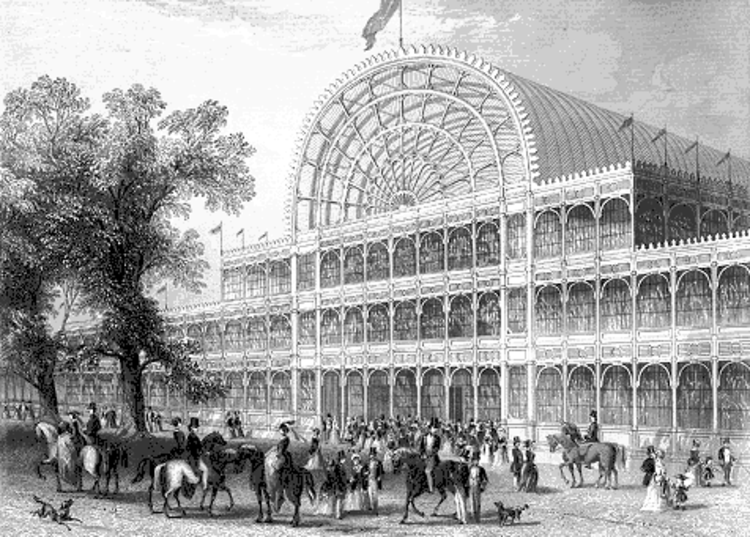
National Library, Paris
Victorian architecture; used slender cast-iron columns over which 9 vaulted sky-lighted domes fitted with skylights are suspended. By Henri Labrouste
Eiffel Tower
Victorian architecture; an iron lattice tower located on the Champ de Mars in Paris. Built for the 1889 international exhibition in Paris
Gustave Eiffel
Who designed the Eiffel Tower?
Paris Opera House 1874
Victorian architecture; one of the symbols of imperial regime. It is a very ornate building and its auditorium’s central chandelier weighs over 6 tons and the ceiling was painted by Chagall
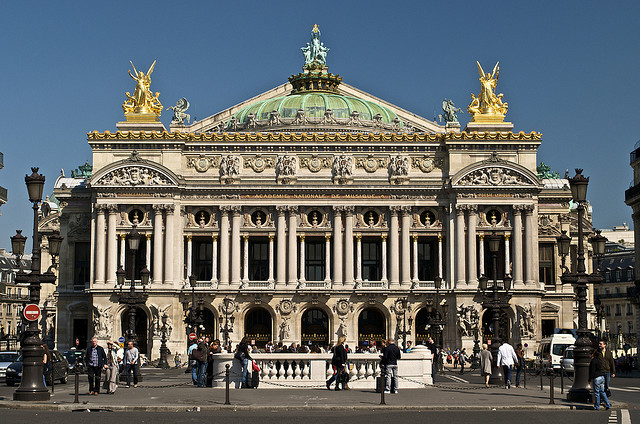
Charles Garnier
Who designed the Paris Opera House?
Gothic Revival
A movement aimed at reviving the spirit of gothic architecture
Augustus Pugin
Believed that Gothic is the only true Christian art. First to codify the principles of Gothic Revival
Westminster Palace
Gothic revival architecture; the meeting place of two houses of the parliament of the United Kingdom. House of the lords and house of the commons. By Sir Charles Barry and Augustus Pugin
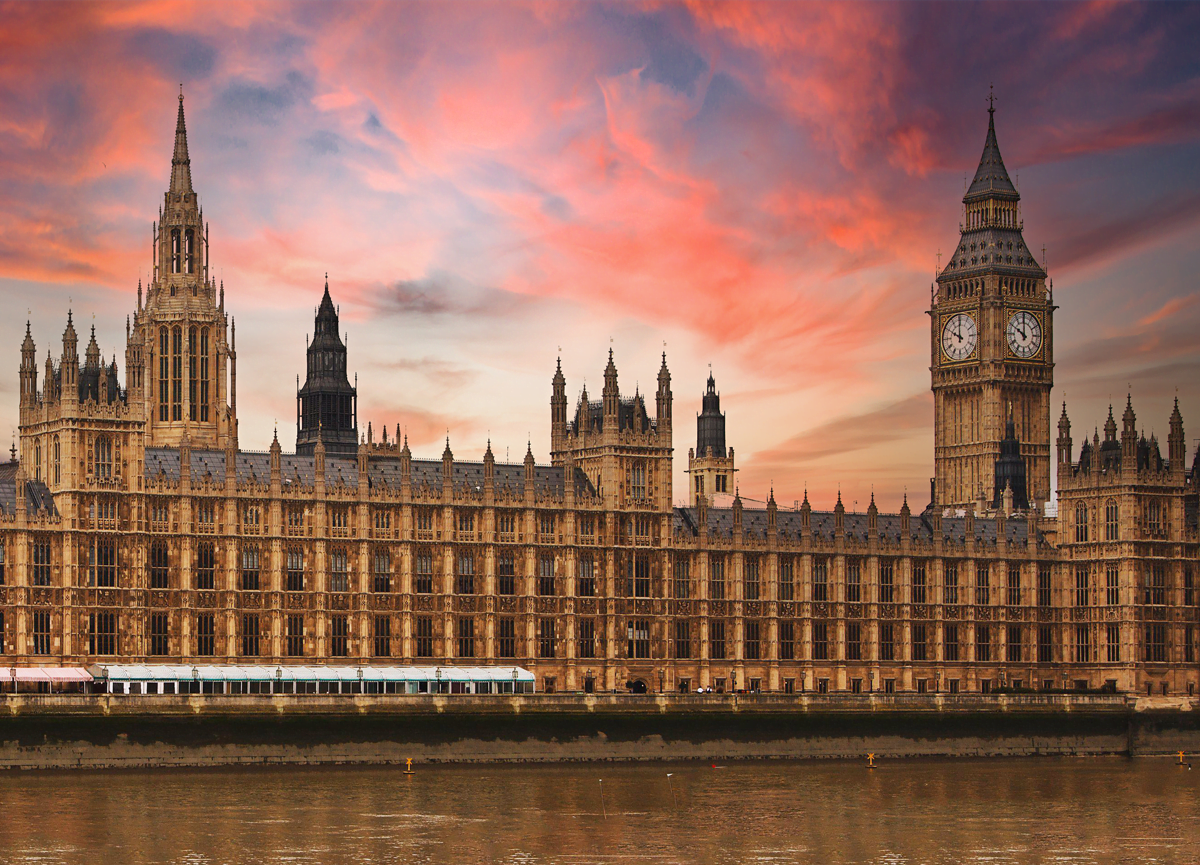
Rationalism
Emphasizes decorative use of materials and textures and the development of ornament as an integral part of structure
Shakers
Earliest and most important influence in US contemporary design. Military orderliness; outside of mainstream design because they believed that beauty is not founded in use is distasteful
Arts and Crafts Movement
Originated in England as a reaction against poor mass-produced goods. Detested the use of steel frames and re-enforced concrete; celebrated the craftsman as an artist
William Morris
Leader of the Arts & crafts movement; established Morris, Marshall, Faulkner & Co. where everything was to be created by hand
The Glasgow School of Art by Charles Rennie Mackintosh
Arts and crafts architectural landmark; a towering rectangular block with almost no decoration, an austere statement and bold break away from the traditional methods of architectural adornment
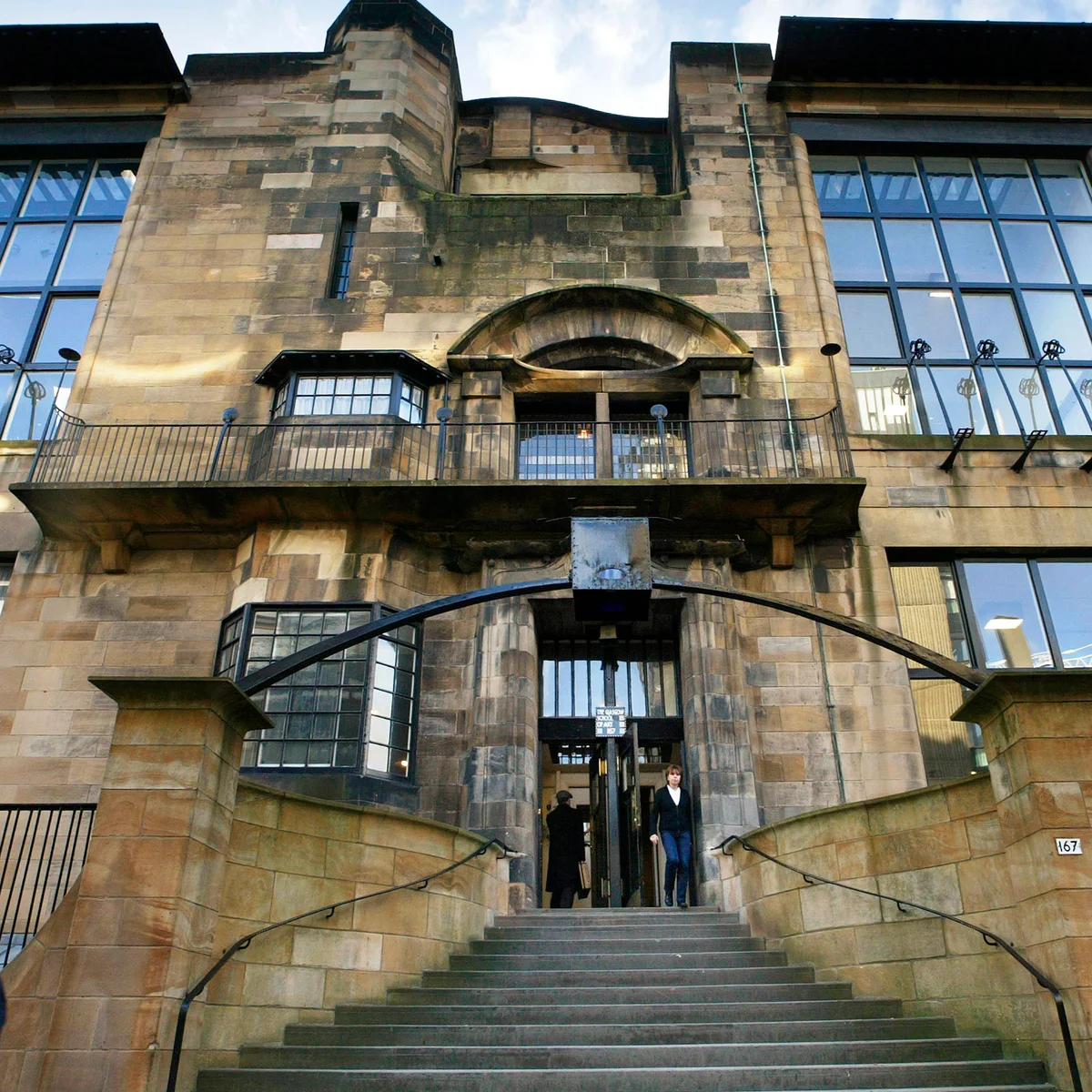
The Red House by Philip Webb
Arts and crafts architectural landmark; a deliberate attempt at expressing surface textures of ordinary materials with an asymmetrical and quaint building composition
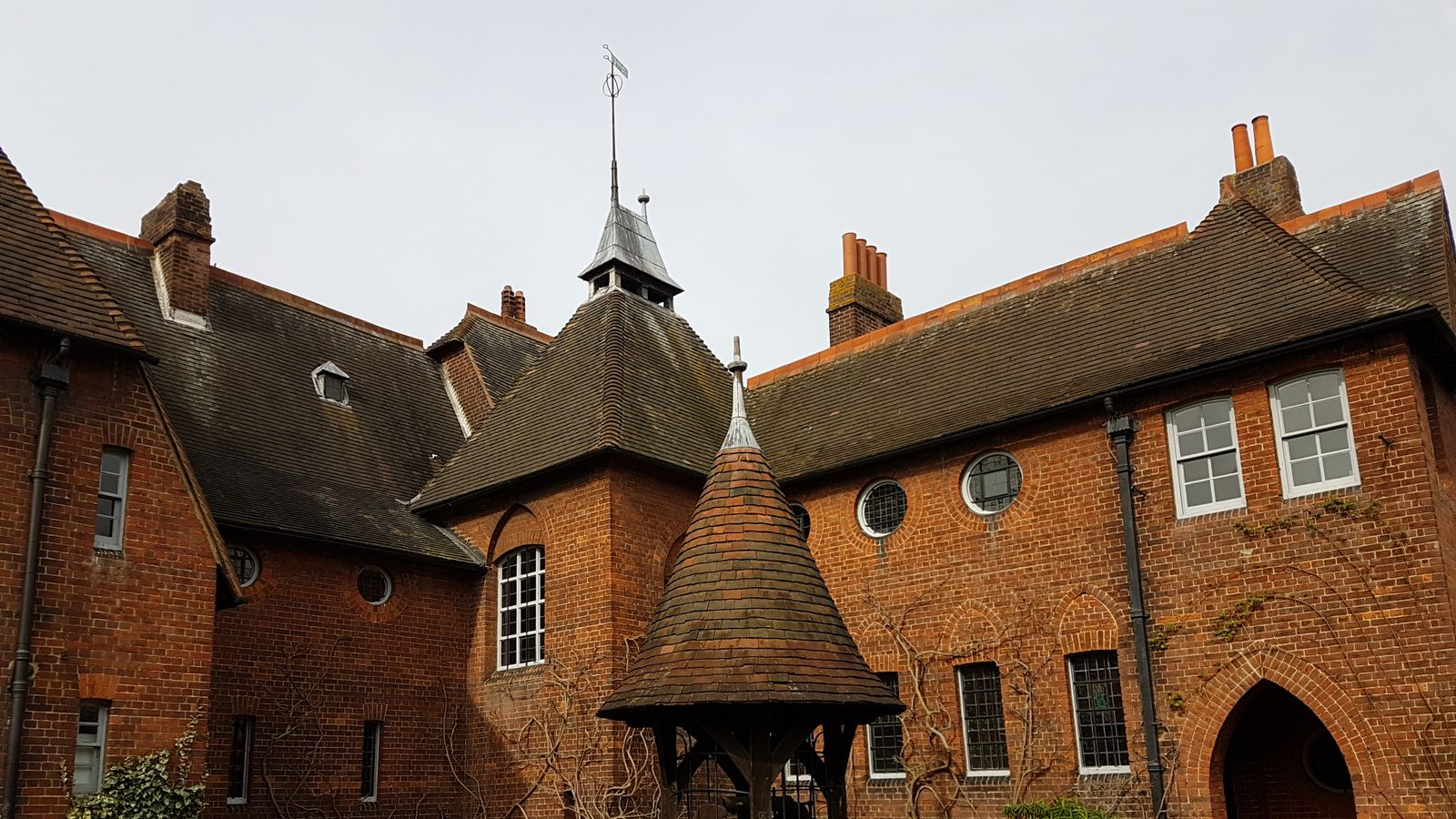
Arthur Mackmurdo
A proto-Art Nouveau designer. He emphasized contrasts of horizontals and verticals.
Gustav Stickley
Arts and crafts furniture designer; and publisher of the magazine The Craftsman; Mission furniture
Charles Voysey
Arts and crafts designer; created furniture with bright, simplified, flat pattern with tulips and stylized trees
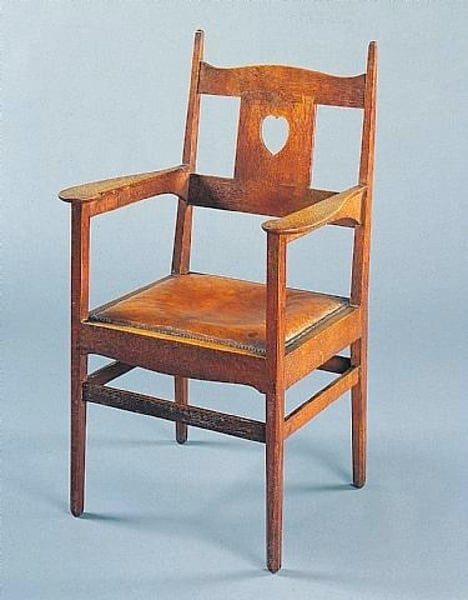
Charles Mackintosh
Arts and crafts designer; tall slender and stem-shaped lines; high back chairs
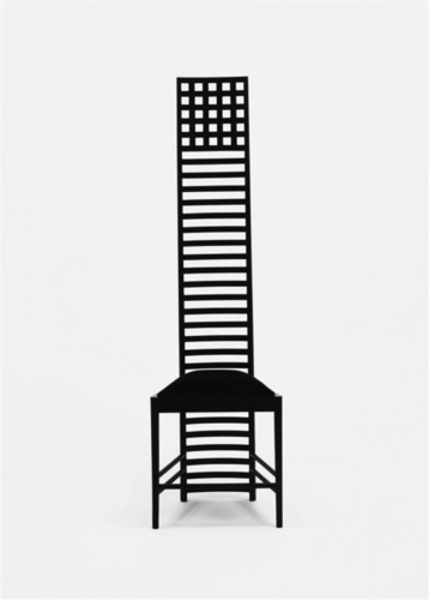
Morris Chair
Arts and crafts furniture; wood with leather upholstered cushions
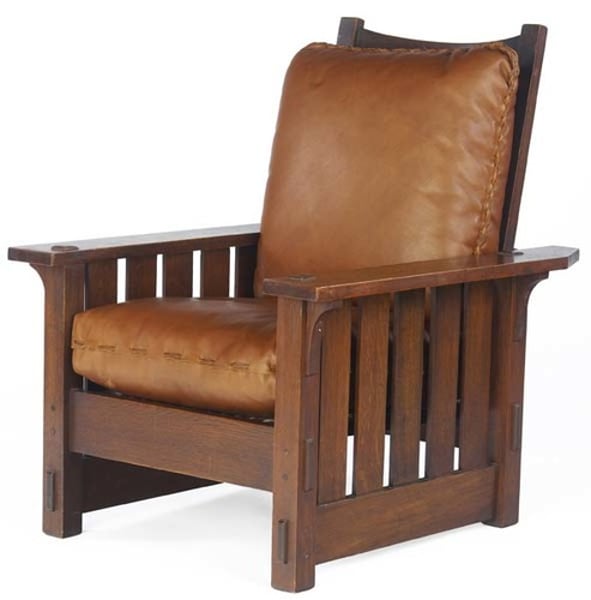
Art Nouveau
Deliberate attempt to create a new style, free of the imitative historicism; inspired by Gothic and Rococo forms but more curvilinear and flowy derived from natural forms
Art Nouveau
This style embraced the use of steel and glass in an artistic way
Style Guimard
Version of Art Noveau; by Hector Guimard
Style Florale
Version of Art Noveau; Floral Style in Italy
Style Liberty
Version of Art Noveau; after British Designer
Modernismo
Version of Art Noveau; Spanish
Sezzionistil
Version of Art Noveau; Austria, Vienna Secession
Jugendstijl
Version of Art Noveau; German, Youth Style
Hotel Tassel by Victor Horta
Art nouveau architecture; known for its highly decorated stairwell which makes a refined play on the vegetable and flower forms
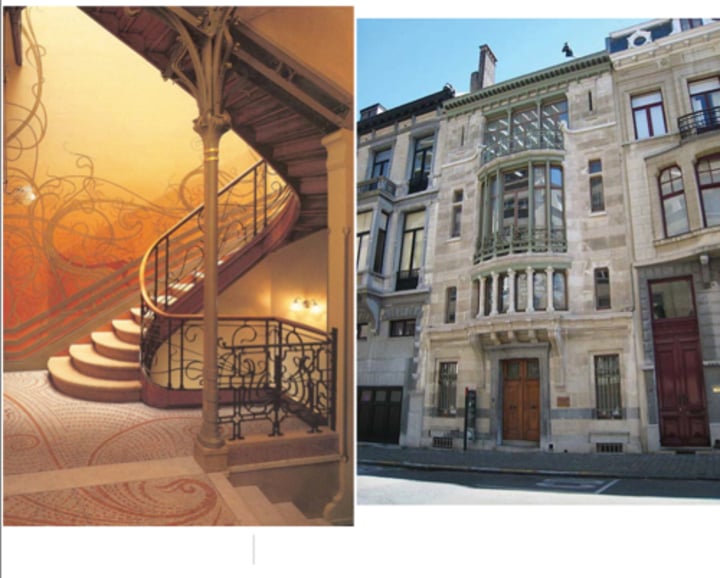
Victor Horta
Art nouveau artist; used whiplash motif and pieces dominated by curved lines
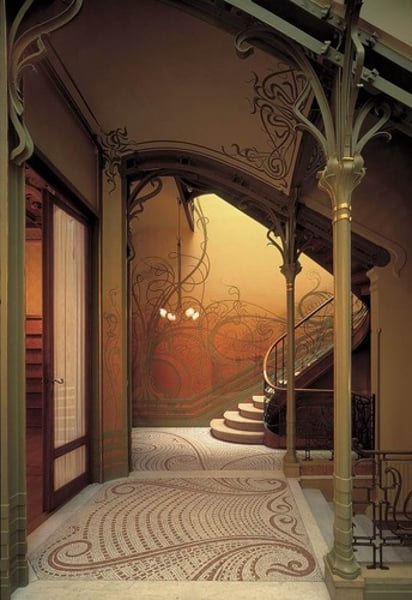
La Maison de l'Art Nouveau
This gallery coined the term "Art Nouveau" as it exhibited much of this work
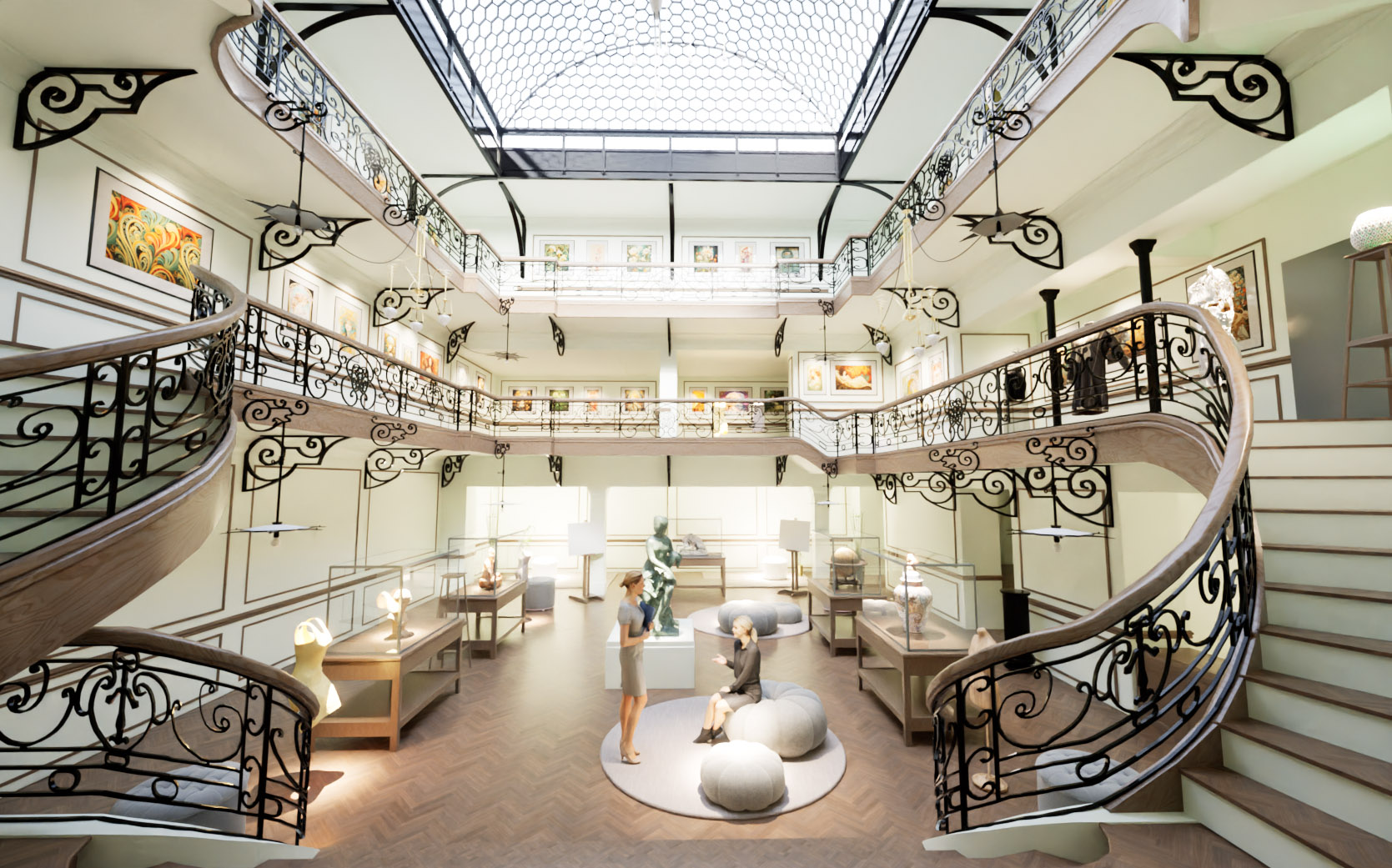
Hector Guimard
Most prominent architect of Art Noveau; his most lasting legacy is the 91 designs of Paris Metro Entrances
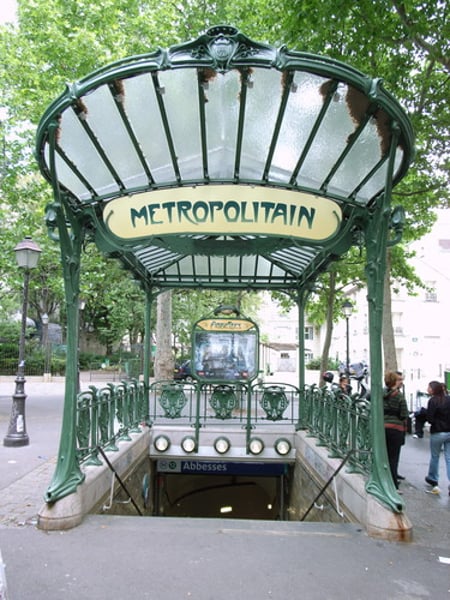
Antoni Gaudi
Art nouveau artist;
• Human skeleton forms
• Wood & iron
• Lacks appearance of stability
• Led the art nouveau movement in Spain
• His most renowned works are Casa Mila, Parc Guell and La Sagrada Familia
Parabolic or Catenary Arches
Used by Antoni Gaudi which he believed nature's natural curve; it also carries weight without the need for buttresses
Casa Mila by Antoni Gaudi
Art nouveau architecture; apartment block. Aka "La Pedrera" or stone quarry because it resembles an open quarry in appearance
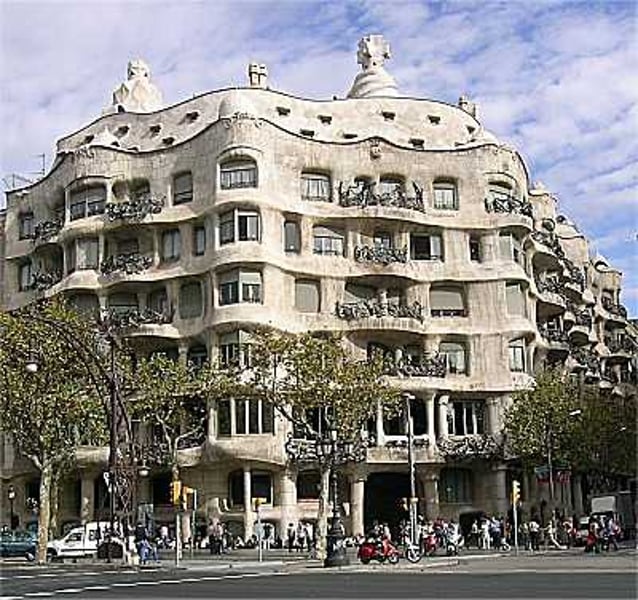
La Sagrada Familia by Antoni Gaudi
Art nouveau architecture; temple of the Holy Spirit is a towering tall building of stone vegetation, it’s the only unique structure that resembles a termite’s mound. Designed to have 18 towers: 12 apostles, 4 Evangelists, Mary and Jesus Christ
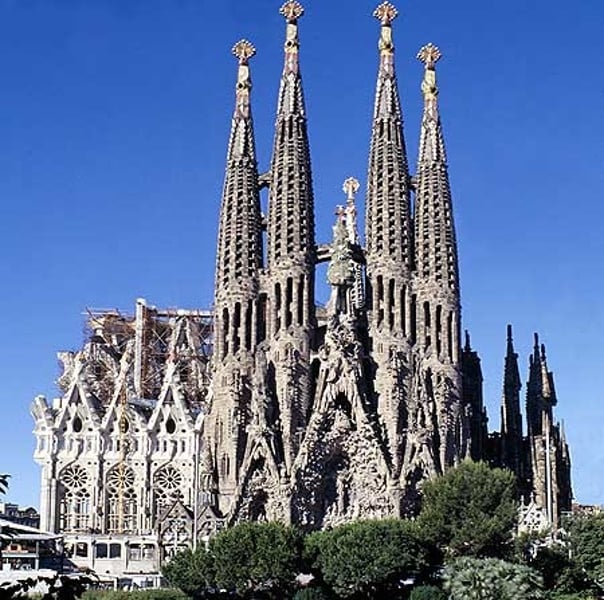
Charles Rennie Mackintosh
He later popularized Glasgow style Art Nouveau in Britain
Argyle Chair 1
Meant to provide the diners a more comfortable dining experience with the comfortable high back; for tea rooms
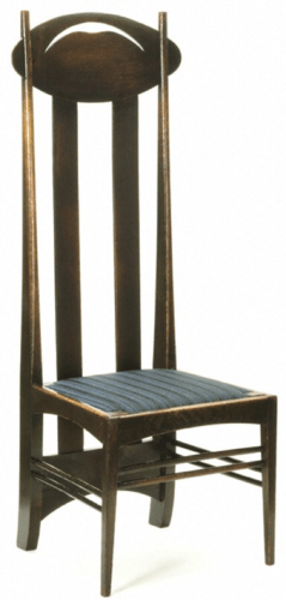
Hill House Chair 1
Mackintosh intended this to be more of an art piece than a functional chair
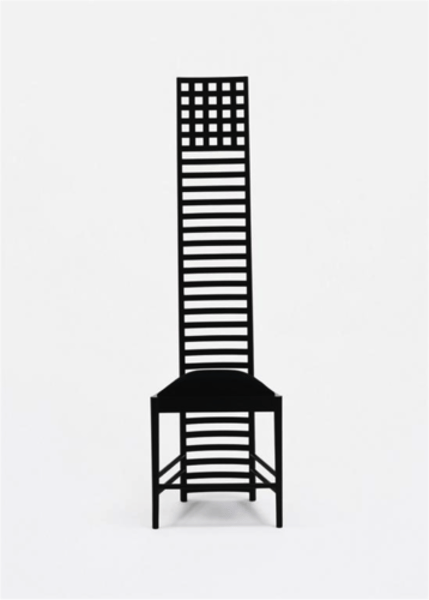
Eugene Gaillard
Art nouveau artist;
• Prominent furniture designer in Art Noveau
• Rococo & classic
• Motif: abstract plant forms
Louis Majorelle
Art nouveau artist;
Used the nenuphar or water lily motif
Emile Galle
Art nouveau artist;
Designed glass accessories; nature & japanese